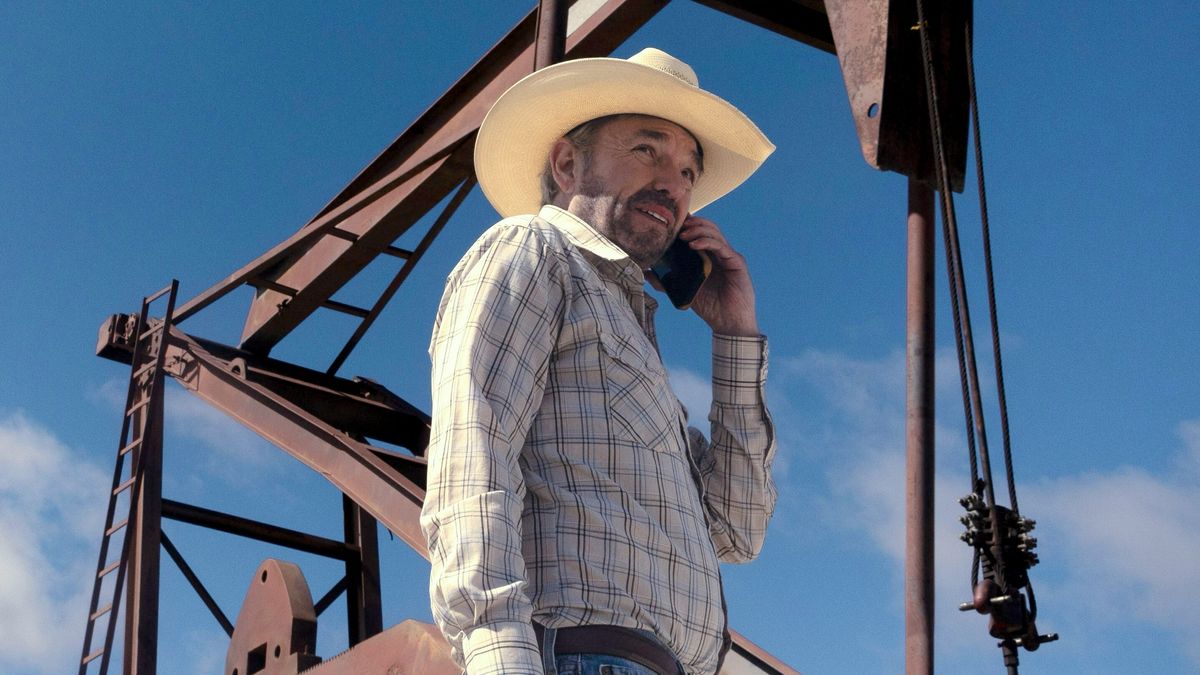Frank Herbert’s 1965 novel “Dune” and its many sequels have long been a staple for science fiction fans. With Denis Villeneuve’s recent silver screen adaptation of the novel with 2021’s “Dune” and 2024’s “Dune 2”, Herbert’s fascinating fantastical world has hit the mainstream ushering in a whole new fanbase of the series. (Casting notable hot people Timothee Chalamet and Zendaya as the two leads certainly didn’t not not help). The story has it all—romance, family drama, enormous sandworms, and a group of amazing, scary women called the Bene Gesserit, a sisterhood whose members possess incredible mental and physical capabilities.


So it makes sense with “Dune’s” newfound popularity that some of its myriad of spin-offs would make their way onto the small screen. “Dune: Prophecy,” which premiered on HBO on November 17, is set 10,000 years before the events of “Dune” and follows sisters Valya (Emily Watson) and Tula Harkonnen (Olivia Williams) as they establish the Bene Gesserit while combating forces that threaten humanity. Since the release of the “Dune” films, the Bene Gesserit have become a pop culture thing —the memes, the adoration for Rebecca Ferguson, and a plethora of black veiled Halloween costumes.
“Dune: Prophecy” showrunner Alison Schapker loved seeing all the Bene Gesserit love this Halloween. “I really enjoyed the cosplay going on out there,” she told IndieWire. To get to tell the origin story of this group of women was a dream for Schapker because she has long been a fan of Herbert’s novels. “I have always been a fan of ‘Dune.’ It was a big reading experience for me as a teenager. I’ve always enjoyed and sought out ‘Dune’ content through the years and I was really obsessed with ‘Jodorowsky’s Dune.’ And then obviously Denis’ films. I have a lot of love for ‘Dune’ as a world and as a universe.”
When the series came her way, Schapker had been working on “Westworld” which was just wrapping up. As a fan and a genre writer, signing on for “Dune: Prophecy” was a no brainer. Schapker’s stacked sci-fi resume includes classics like “Alias,” “Fringe,” and “Lost” and more recent series like “Altered Carbon.” She sees her work on these series as a stepping stone to get to work on something she’s long been a fan of.
“I’m glad I came to it later in my career after I had done a lot of work trying to tell stories that both immersed you in a fantastical universe, but felt grounded in character. And that has always been really important for me to go on the ride emotionally and then be dazzled by the world building, but not one at the expense of another.”
She continued, “They both obviously take an enormous amount of skills and enormous amounts of people. Over my career, I was able to branch out beyond the writer’s room and kind of amass a skillset in the whole craft of filmmaking that all felt in preparation leading up to ‘Dune’ where you can really flex.”
The world building in “Dune: Prophecy” begins immediately in the first episode “The Hidden Hand,” showing the stark gray of the palatial Bene Gesserit school where the women and girls begin their training with young Vayla and Tula at their center. Throughout the first episode, told in both flashback and the present time, we see a modernized school and Salusa Secundus, the homeworld of the Imperial house — which is grandiose and lavish and has the coolest looking nightclub that would make a Brooklyn resident jealous. Getting to do this type of world building, with the right directors, was exciting for Schapker because not only are they 10,000 years before the first “Dune” film, but they also are on different planets.
 Emily Watson in ‘Dune: Prophecy’Courtesy of HBO
Emily Watson in ‘Dune: Prophecy’Courtesy of HBO“That was fascinating to bring to Salusa Secundus or Wallach IX where the sisterhood has their base,” she said. “We were inspired by Denis’ films. We view ourselves as we’re within the same universe, but at the same time, we had a freedom to carve our own territory. And then my philosophy of world building is really that it is a sum total of a gazillion small decisions made in collaboration with the best artists that you can be working with. And if you understand that all of that is cumulative, every decision is made with sort of love and care and reaching for excellence. I try to put one foot in front of the other and then hopefully at the end of it, there’s a world there that feels coherent.”
Aside from the world building, at the heart of “Dune: Prophecy” is its storytelling, especially the complex relationship between Tula and Vayla as they want to save the reputation of their family, build the Bene Gesserit in Vayla’s imagining, and harbor many secrets. Their story is told both in flashback with actresses Jessica Barden and Emma Canning playing the young Vayla and Tula as they struggle to overcome the poverty and ridicule their family faces and Vayla’s appetite for power as she trains to be a Bene Gesserit. In the current timeframe, now that the Bene Gesserit are all-powerful, the two can shape anything to their will, until new forces begin to challenge that.
Schapker also sees their story, mind reading aside, as a story of two sisters and the tricky dynamics that inform those relationships. “What I loved about Vayla and Tula is that there’s an older sister and younger sister dynamic,” she said. “I’m an older sister and I have a very strong memory of what it was like to go from thinking of my sister as somebody who wasn’t as visible to me as a force in the family. And as you grow together, that revelation that your younger sister actually is a force all her own. But at the same time, the resentment the younger sister carries around about being overlooked by an older sibling, and then what does it mean to want to be seen by your older sister?”
Their backstory is filled with family trauma, coming from a backwater planet, having ambitions that at first seem like they can’t be fulfilled — and then what happens when they begin to gain power in an institution was ripe for storytelling for her.
Getting to see how Vayla and Tula navigate the Bene Gesserit as young women and then later on as the leaders of the organization is a perfect way to get into and understand the ins and outs of how they operate and gives a new lens in which to watch Villeneuve’s films. So getting to explore their origins and how they grew to power, for Schapker who has previously worked on so many dynamic women-led sci-fi projects, was something she couldn’t wait to dive into.
“It’s tremendously satisfying to be in a universe where women are taken seriously when it comes to power and politics, and driving the story,” she said. “That’s one of the special things about ‘Dune’ as a sci-fi universe is that the Bene Gesserit, even in Frank Herbert’s ‘Dune’, when they’re at the height of their power and they’re pulling strings, they were right there. ‘Dune’ imagines a world where women are pulling the strings as well as men. Then to be starting 10,000 years before the films with this book trilogy that Brian Herbert and Kevin J. Anderson wrote, where they chose to tell the origin story of the Bene Gesserit in this rise to power of the Sisterhood and they put the Harkonnen sisters at the center of that, which for me as a fan, as a writer, I can’t imagine a better sisterhood within the sisterhood. I came to a show that had baked in it a real respect for women.”
“Dune: Prophecy” gets into all the ways the Bene Gesserit hold their power from their physical strength, mind reading, the voice and even their sexuality. Since this is HBO, that’s something that they are able to explore (spoiler: It’s pretty hot). “Sex is part of the world and it’s also part of the Bene Gesserit’s tools. That’s what’s fun about doing a show like this on HBO where you have time and you also are allowed to explore, and there’s no mandate of ‘we can’t show this or we can’t do this.’ Sexuality is part of our characters’ lives and it’s also a show that’s all about what can be used, what can be harnessed, and what animates you,” Schapker said.
But with all power comes a darkside and “Dune: Prophecy” isn’t afraid to question the motives and the execution of what the Bene Gesserit are seeking out to do especially in the face of a changing sisterhood in crisis, a potential new powerful foe, and creating a future at least to them is a better option.
Schapker noted, “What’s interesting about these women is they’re navigating power on multiple levels and in different ways. There’ll be times when we are inspired by what they’re doing or the lengths they’re willing to go to and other times where it’s appropriate to be a bit terrified. And I think that space in between is where you have to ask yourself, well, how do you operate in this gray area and what lengths are appropriate to go to and what lines should be drawn around people’s power?”
The six episode series promises to be a new Sunday night feather in HBO’s appointment viewing cap as well as another vantage point for “Dune” fans both old and new to revel in the complex storytelling. But Schapker sees her series being able to do what Villeneuve’s films did for the universe as well.
“We really tried consciously to make it a series that if you’re a ‘Dune’ fan, you can really enjoy the lore, the worlds, and the story,” she said. “And if you’re not a ‘Dune’ fan, we really consciously tried to thread the needle that you could start here. That was an idea that this could be, on the one hand, a real point of entry, but also a rewarding viewing experience for those of us who love ‘Dune.'”
“Dune: Prophecy” premiered on HBO November 17.




















 English (US) ·
English (US) ·